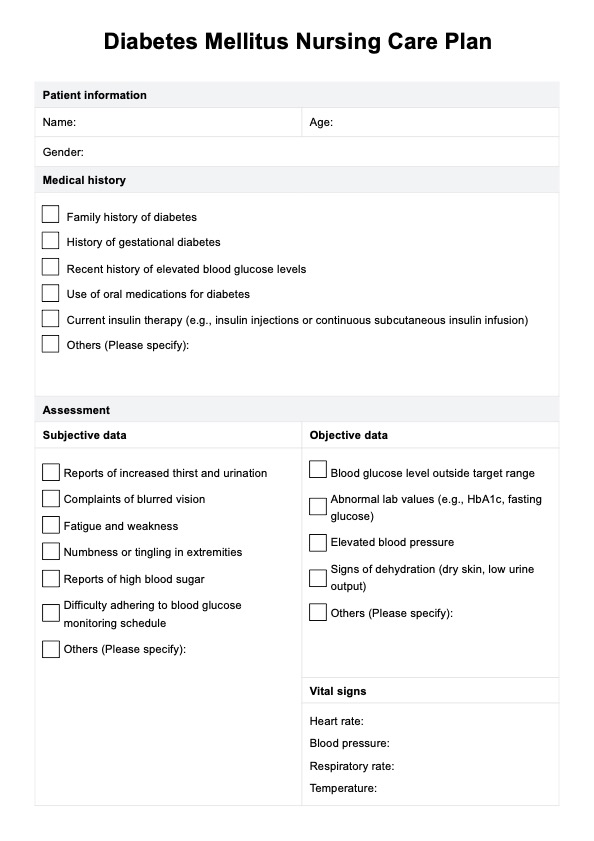Self-monitoring of blood glucose levels is crucial for managing diabetes effectively. It helps individuals track their glucose levels, identify patterns, and make informed decisions about their treatment regimen to achieve optimal glycemic control.

Diabetes Mellitus Nursing Care Plan
Download our Diabetes Mellitus Nursing Care Plan Template to enhance patient care with structured assessments, personalized interventions, and comprehensive diabetes management.
Diabetes Mellitus Nursing Care Plan Template
Commonly asked questions
Your dietary intake plays a significant role in determining your fasting blood glucose level. A balanced diet, rich in nutrients and low in refined sugars, can help maintain stable glucose levels and prevent spikes that could lead to complications.
Diabetes educators provide essential guidance and support for individuals managing diabetes. They offer education on proper dietary intake, self-monitoring techniques, and strategies for achieving better glycemic control, which can help prevent complications like peripheral neuropathy and heart failure.
EHR and practice management software
Get started for free
*No credit card required
Free
$0/usd
Unlimited clients
Telehealth
1GB of storage
Client portal text
Automated billing and online payments











